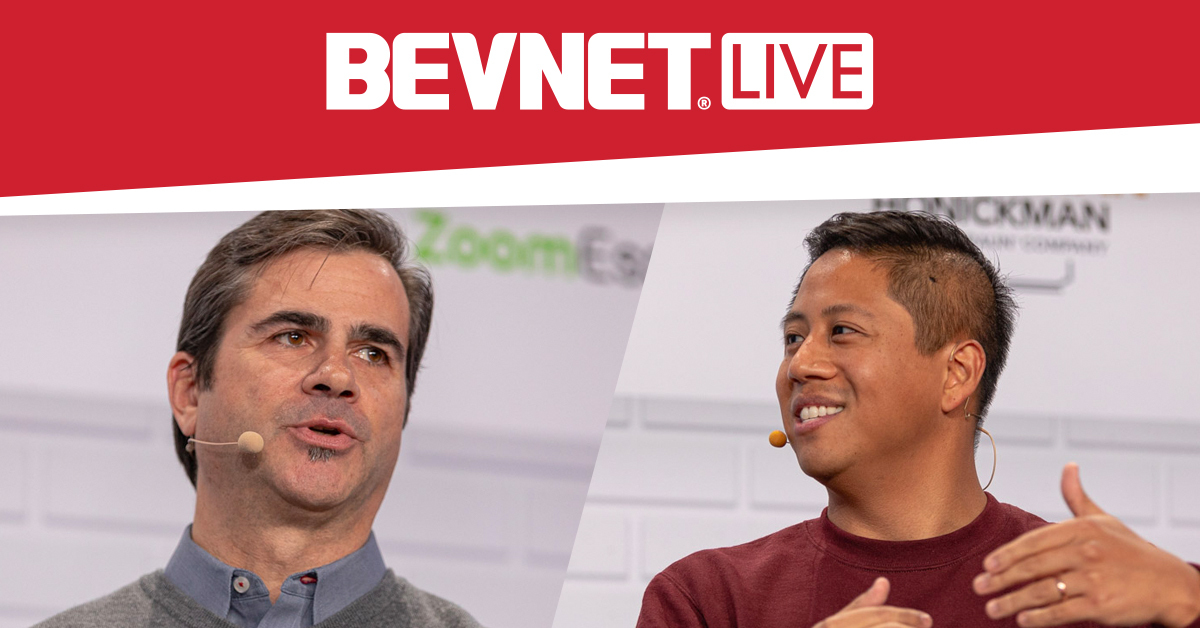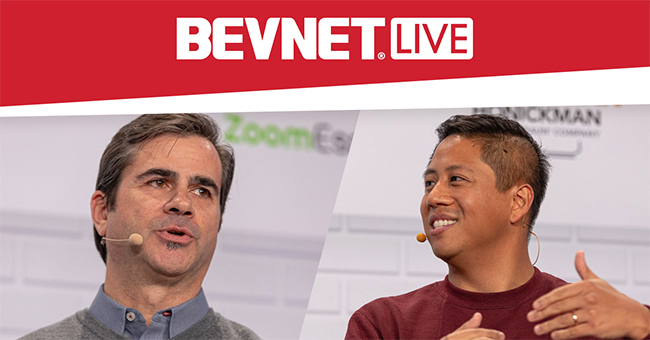After a year of upheaval and uncertainty, beverage brands and entrepreneurs must be more active, adaptable, and careful than ever before as they seek to reach consumers with their unique products. That theme permeated the presentations and discussions across drink categories during the opening day of BevNET Live Winter 2022 today, which touched on topics ranging from the state of the market and the rise of RTD cocktails, to case studies on the slow-but-calculated growth of brands like Celsius and Waterloo.
State of the Market: Uncertain
At the start of 2022, the world was still emerging from two years of living with COVID-19, and still grappling with fears of more variants bringing new waves of infection. But after the invasion of Ukraine sparked a global inflation crisis and concerns over spiraling costs-of-living, beverage brands have new challenges to take on.
Right off the bat, Janica Lane, managing director at Piper Sandler, cited the impact of a potential forthcoming recession as a chief macroeconomic stressor of food and beverage companies today. Within an interconnected economy, that has had knock-on effects on the stock market and companies’ ability to access growth financing. And while economic cycles are nothing new, Lane noted that “it feels like every year since 2020 has been more uncertain than before.”
“If you guys are looking at the sell-through data and looking at growth from pricing versus volume in almost every single category, it’s price and not volume that’s driving the growth,” she said.
Examining how pricing has influenced his brand’s recent gains, Sanzo founder and CEO Sandro Roco explained how his product has benefitted from intentionally starting from a higher price point ($2.49 per 12 oz. can). That decision was partly driven by margins, but also helped to stress test the brand’s potential.
“It was also a challenge to say hey, is this product, is the brand unique enough? Can we build a community around this that justifies that level of premium, so that we aren’t having to have these conversations that other brands may be having?”
That environment has shaped promotional activity. According to Tim Dornfeld, Senior Category Manager for Shelf-Stable Beverages at KeHE, brands are “tightening their belts” to a certain degree while also being more intentional in choosing their targets.
“I don’t think we saw the overall number of promotions decline, but maybe how deep or how wide,” he said.
Yet at the same time, continued demand for disruptive and better-for-you food and beverage products means that the space is insulated from some effects of a recession. As senior category manager for grocery at natural chain Sprouts, Brian Albert said that he’s looking across every category for innovation.
“I believe beverages are hot, they continue to grow. There is a component of pricing, there is a component of supply chain, but new items continue to be the lifeblood of our industry. So that’s where I’d focus.”
Standing Out in the Crowd
In reflecting on the fast-but-focused ascent of Texas-based flavored sparkling water brand Waterloo, CEO Jason Shriver highlighted some of the tactics it has used to emerge from a crowded field of competitors to become a national brand.
Having started his career during the early days of AriZona Iced Tea, Shriver reflected on how he examined the job opportunities presented throughout his time in the industry, which included weighing factors like the size of the category, competition within the space and route to market. That experience also brought Shriver into contact with industry talent, many of whom he recruited to join Waterloo after he stepped in as CEO in 2017 when the brand was still pre-revenue.
Sizing up Waterloo’s competition, Shriver noted that while large conglomerates like Coca-Cola and PepsiCo have the resources to outmuscle many rivals over the long-term, the category’s smaller, scrappy startups can be just as tough, as they are nimble and unpredictable in comparison.
“We know that typically (competitors) have a similar strategy that we have, which is put pros in there and really go after it, and they can make a lot of noise and be very disruptive,” he said.
Therefore, in order to win in a crowded category, Shriver stressed the importance of partnering with seasoned operators (or “strategic doers”) and creating a culture of entrepreneurship within the company, part of which is helped by bringing in people with experience. Beverage makers should also focus on controllable elements for the brands; for Waterloo, Shriver noted, that has been a “maniacal focus” on flavor, a commitment that has given the company some breathing space from its rivals.
Shriver also encouraged brands to follow Waterloo’s lead by keeping a long view, noting that the potential distractions that his company has avoided have turned out to be sound choices (“Say no to the shiny new toy,” he mused). Finally, authenticity is key.
“Any brand should be a reflection of the core values of your team,” he said. “That should shine through your brand. If you are trying to be anything other than the people who make up your company, the consumer is going to sniff that out. They’re going to know that it’s not authentic.”
Liquid Death, Seth Goldman Take Top Annual Awards
After a breakout year which saw the company soar to unprecedented heights, Liquid Death was named Brand of the Year at BevNET’s Best of 2022 Awards, the winners of which were revealed on day one of BevNET Live Winter 2022.
The canned water company was recognized for having a breakout year in which it expanded its distribution, secured growth capital, brought on new key partners and revealed its ambition to evolve into a bigger, broader beverage platform. Accepting the award on stage, Liquid Death founder and CEO Mike Cessario attributed much of the brand’s success to its team, noting that the company derives greater value from investing in deeply experienced and tenacious talent that can ensure the “little things” that make a big difference are properly handled.
Also honored during the show was Seth Goldman, co-founder of Eat the Change and the driving force behind Just Ice Tea. Having watched his former brand Honest Tea get discontinued by Coca-Cola over the summer, the CPG veteran quickly assembled a new supply chain and route to market for his second foray into the tea category, going from concept to launch in a matter of months. That decision proved fortuitous for consumers seeking a lightly sweetened organic tea option, but also retailers and growers who had been blindsided by Coke’s decision.
For the complete list of winners, see our BevNET Best of 2022 page.
Also on day one…
- Three brand leaders from the rapidly growing ready-to-drink cocktail market – Sagamore Spirits co-founder and president Brian Treacy, Loverboy founder Kyle Cooke, and Hope Ewing, Head Bartender in Charge at Vervet – shared their perspectives on the present and future of the category.
- Celsius CEO John Fiedly reflected on the wins and losses the energy drink company has seen over the past half-decade as it revamped its image to become one of the category’s largest players and earn the backing of PepsiCo.

